
I just received this question on Facebook and because it’s such a common question I decided to write about the subject and share it. Because of the amount of information I want to give, I will have to release this in a 3-part article. This is Part One. To see Parts 2 and 3, please sign up for my newsletter at CameraReadyCosmetics.com. I will release Part 2 and Part 3 shortly.

“Hi Mary! I'm a longtime fan of CRC and your work! I had a topic idea for emerging MUA's. I recently left my full-time management role with MAC cosmetics to pursue my freelance career full time. I live in XXXXXXXXXX which has a strong bridal market but I'm working to get more commercial work. There are many companies based out of XXXXXXXXXX and I'm struggling to break into commercial work. I've been collaborating with photographers and local models but I'm not sure how to tap into commercial work. I met with a tenured freelance artist in the area and she just viewed me as competition and offered no insight. Any suggestions you have would be greatly appreciated!”
I have been asked this question many times over the past 30 years. I’ve given the keys to commercial success out sparingly in the past, less than 6 times in the past 30 years.
Why did I hold these secrets so tightly? For one I didn’t want to share secrets in my own market and create even more competition for myself. I know that sounds selfish, but it’s self-preservation in a small market. What business owner helps their direct competition?
 Another reason for not sharing is that most people wouldn’t follow through with advice I gave them because, quite frankly, most people just won’t put in the real work. So, I assumed it was a waste of my time. The few people with whom I did share these tightly-held secrets did go on to succeed in the business.
Another reason for not sharing is that most people wouldn’t follow through with advice I gave them because, quite frankly, most people just won’t put in the real work. So, I assumed it was a waste of my time. The few people with whom I did share these tightly-held secrets did go on to succeed in the business.
I feel like it’s time now to share this same information with the masses, because I think a level playing field is fair. Let the hardest working men/women win.
What Is Commercial Work?
Commercial work is what I consider work for companies like Sony, HP, McDonalds, grocery store chains, hospitals, large corporations, etc. Most employ makeup artists for their TV commercials, print ads, internal videos, and annual reports. I will add catalog work here as well, because most commercial artists also do catalog work.
These are what I call “commercial jobs,” and I call artists that primarily do this type of work, “Commercial Artists.” In most cases a commercial artist is expected to do hair and men's grooming as well as makeup. This weeds out a lot of makeup artists who are not skilled with hair or just afraid to branch into that area.
 On many commercial jobs, there is no wardrobe or hair stylist. In this case, you will oversee straightening ties, smoothing out clothing wrinkles, and so forth on set. Full steaming and ironing is generally not required, but without a stylist on set you will be expected to at least straighten ties.
On many commercial jobs, there is no wardrobe or hair stylist. In this case, you will oversee straightening ties, smoothing out clothing wrinkles, and so forth on set. Full steaming and ironing is generally not required, but without a stylist on set you will be expected to at least straighten ties.
So essentially on smaller sets you are the makeup artist, the hair stylist, the men’s groomer and the wardrobe stylist.
How Much Money Does A “Commercial Artist” Make?
The world of commercial makeup artistry can be lucrative – probably one of, if not the most lucrative jobs in the makeup artist industry. It’s also steady work.
Twenty years ago, the average commercial artist made about $600 a day in Southern California. That was 20 years ago. When I retired a few years ago that average (in Southern California) was $700-1,200 per day.
The good artists in my market worked 3 to 5 days every week. Of course, many artists wanted this exclusive niche in the industry, but very few could wrangle their way into this market and that wasn’t for lack of trying.

Today commercial work is still lucrative. It is mostly untouched by the Instagram market, untouched by the “celebrity” artist market, and really is still a market that plays by its own rules outside of social media.
The pay varies depending on the area and the size of the market. Los Angeles, New York, Chicago and other major markets still command $700 to $1,200 per day on average.
Smaller markets can go down to as low as $500 a day for this type of work. There are a few commercial artists working for less, but in my opinion doing so is a very big mistake that I will touch on later.
How Do I Get This Commercial Work?
Now that’s the million-dollar question! Let’s start with your calling card.
Your Portfolio
You must have a commercial portfolio, and it needs to be online where people can see it. Take all the crazy and fun makeup out of your portfolio; put that in a separate place where the commercial client will not stumble upon it.
The "no makeup look" is what they want to see, polished and clean. This is the most difficult makeup to perfect because it involves restraint, something most artists have not perfected and truth be told, don’t want to perfect. It’s boring.
Here are a few examples from my very old and dated portfolio, but keep in mind that commercial makeup doesn’t change much from year to year.

The lip colors change, hair styles changes, but rarely does the rest of the makeup change. You just need great work presented, and toss the rest out.
Your portfolio is only as strong as the weakest shot in that portfolio, and that’s what your future client is looking for – they look for the weakest shot in your portfolio, because this shows them what you consider "good enough."
DO NOT trust yourself to edit your own portfolio. Go to successful people in the industry and get opinions. Don’t seek out friends and other beginners. Your family and friends are not your target market.

We all become attached to our own work, so don’t make that mistake. If you love a photo you worked on, hang it on your wall. Don’t put it in your portfolio unless you know the decision makers will love it.
A client considering hiring you will look for exactly what they want in makeup. That makeup needs to be in your portfolio. If you bury that makeup with 50 other photos, you will probably lose that client.
Keep your photos to a bare minimum and just the very best representation of your work.
Your Website
You need a website and not a social media portfolio.

Let’s start with the domain name. The best-case scenario would be to own your own name, the same name as on your other promo material. Nothing too cute. Keep your website and business name professional.
As a commercial artist, a website like luciouslooksbybabs.com isn’t going to help you. You need a name that encompasses who you are as a professional commercial artist.

If your name is Wendy Low it would be best to own wendylow.com. If you can’t get that, try makeupbywendylow or some variation that stays out of the real "cute" area.
If you have a very difficult name to spell and pronounce go with something like makeupbywendy or makeupartistwendy or wendylowmakeupart, etc.
Try to use the name by which people know you. Using your first and last name will help you with SEO, and I’ll touch on SEO later.
Go and buy your domain name NOW! It’s around $10-14.00 a year. GoDaddy.com is just one of many domain services from which you can buy.
If your own name is taken but you can’t find anything at that web address (the name is not being used for an active website), email the owner and ask to purchase it for $100.00. You can work up from there.
To find the owner you can do a “who is” search in google and find that information quickly. When purchasing a domain name Skip the ‘.net,’ ‘. co,’ ‘.org,’ and other extensions.

Stay with the ‘.com’ suffix. I’ll explain why later. If you can’t invest $10 to $14.00 a year into your business, you probably should stop reading now. You aren’t ready to enter the world of commercial makeup artistry just yet.
One other bit of advice: once you have your own domain name, please use that as your email address. Market from wendy@makeupbywendylow, and not wendy12345@aol or wlow3456@yahoo. There's no need for you to advertise for AOL, Yahoo, Gmail, or Hotmail!
I’ll wait right here for you.
Stay tuned for Part 2 coming soon! Sign up for my newsletter at CameraReadyCosmetics.com





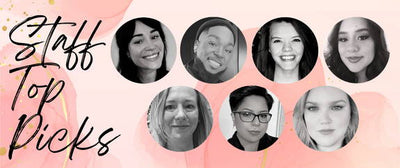
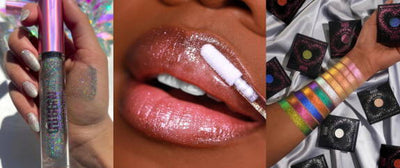
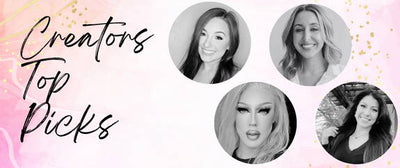
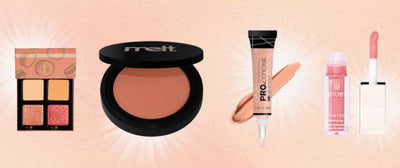
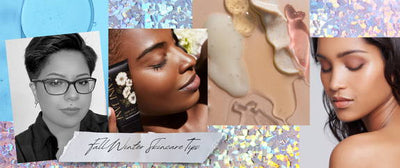
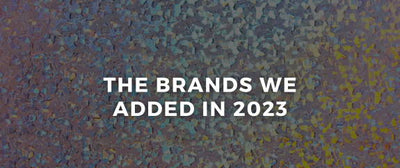



Thank you for the information, I’m dying to get into commercial make up artistry . Looking forward to your next issue . Thank you kind regards.
Leave a comment